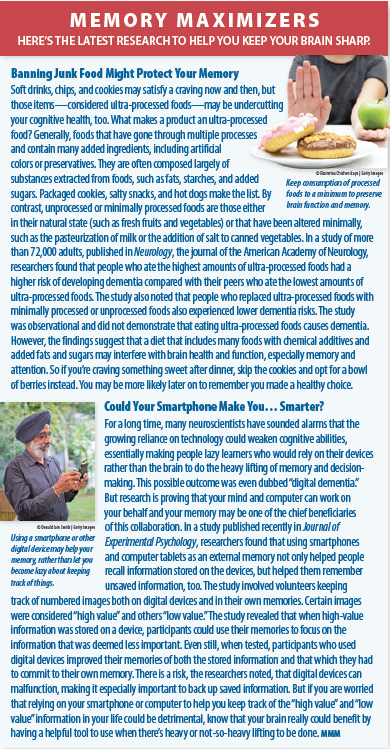Can Mindfulness Meditation Relieve Pain and Boost Your Mental and Physical Health?

© Buena Vista Images | Getty Images
Mindfulness is a state in which you are aware of the sounds and other sensations around you in the present moment, and you acknowledge and let thoughts and feelings about the past and future pass by without judgment.
Sometimes it’s important to recall a difficult conversation or event if a relationship needs to be patched up. Likewise, you need to look ahead when making financial decisions or when planning a medical procedure. But spending too much time ruminating about the past or future and not enough time focusing on the here and now can raise your stress levels and put your mental and physical health at risk.
When the mind wanders it can enter territory that is marked by doubt, regret, and other negative thoughts and feelings that increase activity in what is known as the default mode network—a group of brain regions that is helpful when solving problems, for example, but not as beneficial in other ways. Default mode network activation is also associated with greater stress levels and mood disorders, including depression. And higher levels of stress are linked to many physical health problems ranging from high blood pressure and insomnia to headaches and irritable bowel syndrome.
One solution to bringing your thoughts back to the moment is mindfulness meditation. It’s a way of reaching a state where your mind is focused on your breathing and the sensations you’re experiencing in the present moment, not on what you have to do tomorrow or things you wish you had done differently years ago.
“Rumination is part and parcel of a lot of stress-related disorders,” explains Gregory Fricchione, MD, associate chief of psychiatry at Massachusetts General Hospital and director of the Benson-Henry Institute for Mind Body Medicine. “With mindfulness, you refocus your attention on your breathing and nonjudgmental responses. You’re essentially short-circuiting the default mode network.”
What Is Mindfulness
The concept of mindfulness is relatively simple. It’s a mental state you achieve by making yourself keenly aware of the present moment and not focused on other past or present concerns or otherwise intrusive thoughts. Mindfulness meditation is usually done by sitting quietly with your eyes closed and relaxing, focusing at first on your breathing and later opening up your mind to the other sensations around you.
And because the brain never takes a break, understand that thoughts and feelings will enter your mind. But rather than greet them as a nuisance in your efforts to relax and de-stress, mindfulness meditation allows you to accept thoughts and feelings without judgment and set them aside.
Like anything, mindfulness meditation takes some practice. You may not feel like you’re quite getting it at first. But the more you make sincere efforts at becoming mindful, the better able you should become at living in the moment and not letting the mind wander to set off the default mode network.
Much of mindfulness is about boosting the capacity of your brain to tamp down the stress response and deal with your thoughts, worries, responsibilities, and emotions in a healthier, less-stressful way. This ability is called emotional regulation, and it’s at the core of how mindfulness can make a positive difference in how you go through life.
And by not letting certain thoughts and feelings become overwhelming, you’re helping your physical health avoid being harmed by too much stress.
Health Benefits of Mindfulness
 The ups and downs of your physical and mental health are subject to many factors beyond your control. Age, family history, congenital disorders, and in many cases injury, infection, and environmental or circumstantial problems all can interfere with your health and well-being.
The ups and downs of your physical and mental health are subject to many factors beyond your control. Age, family history, congenital disorders, and in many cases injury, infection, and environmental or circumstantial problems all can interfere with your health and well-being.
But stress, or rather the ability to manage your stress, can often make a significant difference in both the onset and progression of serious medical conditions. “If you believe that a reason for stress-related illness is the activation of the default mode network, you can see why mindfulness meditation might help,” Dr. Fricchione says. “You’re going to the source and shutting it down for a while.”
Keeping your stress levels low also appears to have positive effects on sleep, blood pressure, mood, and even the perception of pain. In a study published earlier this year in the American Journal of Psychiatry, researchers showed how mindfulness training changed pain-related activity in the brain that corresponded to a reduced sensation of pain among the volunteers in the study. The researchers are hopeful that further studies will unlock ways mindfulness training can become a standard part of pain management and reduce the burden pain places on the lives of people dealing with both acute and chronic pain.
Interestingly, the key parts of the brain that respond to pain, including the anterior cingulate cortex and the thalamus—part of what’s called the “pain matrix”—are also the regions involved with emotional and social pain. Rejection, for example, actually hurts because the mechanisms that process rejection are the same ones involved with processing a stubbed toe or more serious injuries.
“Mindfulness can help dampen that response,” Dr. Fricchione says. “It’s not a cure-all, but it’s helpful.”
While the stress response has a helpful role in life—it can alert us to danger and prepare us for challenges big and small—if it is allowed to continue unchecked day after day, the harm can be substantial. For example, high levels of the stress hormone cortisol are associated with increased cholesterol, blood sugar, and blood pressure—all of which are risk factors for heart disease and stroke.
Chronic stress saps the body of the resources it needs to remain healthy and bounce back from physical and psychological struggles. “Too much toxic stress and not enough resilience makes you vulnerable,” Dr. Fricchione says.
Not Just Mindfulness Meditation
For mindfulness meditation to be effective, a person needs to believe that it can help and be ready to give it a sincere effort, Dr. Fricchione says, acknowledging that it may not be the right approach for everyone.
“Whether it’s mindfulness meditation or other types of meditation, it just feels good to have a place to go in your mind to find that emotional regulation,” Dr. Fricchione says, adding that just as you shouldn’t live all the time in a ramped-up stressful state, you can’t spend 24 hours a day in mindfulness meditation. He notes that the goal is to be able to “toggle” between the mindfulness state of the moment and the practical taking-care-of-business state when that is necessary.
And if formal meditation isn’t your cup of tea, there are, fortunately, many paths to mindfulness and stress reduction. Pet therapy and the simple act of cuddling an affectionate dog can keep you from ruminating, and a walk in the park where you allow yourself to just listen to the birds and the breeze in the trees and not allow yourself to worry about past or future events can lead to mindfulness, too.
The post Can Mindfulness Meditation Relieve Pain and Boost Your Mental and Physical Health? appeared first on University Health News.

